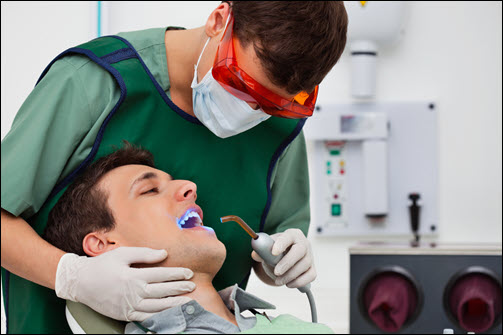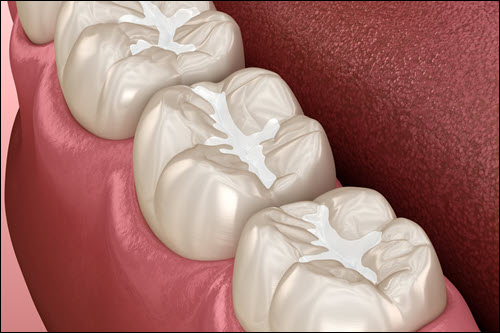Dental Sealants
Proper and consistent dental hygiene is essential to having a healthy, beautiful smile. But sometimes, despite intentional brushing and flossing, dental issues still occur. Fortunately, there are preventative measures to taken to protect your smile. One such measure is the use of dental sealants.
Sealant FAQs
What are dental sealants?
Dental sealants are coatings placed on the teeth to protect against decay. It is important to keep plaque from forming on teeth as it damages the enamel and causes cavities. Because our back teeth do most of the chewing, they are more susceptible to plaque buildup. These teeth have more grooves, known as fissures, that can be deep and narrow. The fissures can be deeper than the average toothbrush can reach. This allows plaque to accumulate.
Who can have dental sealants?
 While they are usually for children and teens, anyone can have dental sealants. Sadly, the CDC says less than 50% of children and teens have sealants. Some states make dental sealant available to school-age children as a proactive measure. If you feel you or your child(ren) would benefit from sealants, don’t hesitate to ask a member of our dental team!
While they are usually for children and teens, anyone can have dental sealants. Sadly, the CDC says less than 50% of children and teens have sealants. Some states make dental sealant available to school-age children as a proactive measure. If you feel you or your child(ren) would benefit from sealants, don’t hesitate to ask a member of our dental team!
What do sealants look like?
One of the great things about sealants is that they are nearly undetectable. Depending on the type of sealant used, they may be clear, white, or have a tint. They will not feel any different when you touch them. However, the first few days you have them, you may be aware of them.
What are alternatives to sealants?
If you are concerned about an allergic reaction, another option is a fluoride varnish. It can be used on children and adults and is an effective method of preventing cavities. There are also over-the-counter options your dentist may suggest, but these are not as effective as professional sealants.
How are dental sealants applied?
Your dental hygienist cleans the teeth and paints them with a mild acid solution. This roughens the tooth so the sealant will adhere to the surfaces of the teeth. Cured with ultra-violet light, the sealant completely hardens within 15-30 minutes.
How long do sealants last?
Sealants can last several years, typically a minimum of 5 years. How long often depends on you. Sealants can be dislodged if you chew ice or hard, sticky candy, have a very acidic diet, or have GERD or acid reflux.
Sealants are an excellent choice for anyone interested in preventing cavities and protecting their teeth. If you want to combine this proactive measure with your current dental care, talk to one of our dental team members at Forest Hills Dental Associates.

